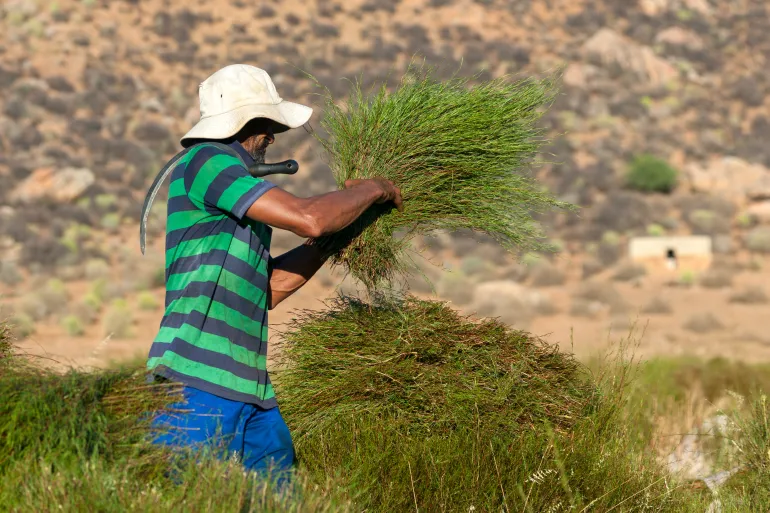In a remote region of South Africa’s Cederberg mountains, farmer Boltwin Tamboer continues the traditional harvesting of rooibos tea, a key ingredient in a new superfood beverage gaining global recognition. Recently, he has been harvesting the hardy shrub as part of an industry that is now evolving, thanks to the emergence of “red espresso,” a caffeine-free coffee alternative.
The growth of this beverage has introduced new economic opportunities for local growers while highlighting the rich history of rooibos tea, which has been a staple in South African households. Tamboer’s San (Bushmen) ancestors first recognized the healing properties of this yellow-flowered shrub, which is unique to the Cederberg region.
The humble plant has recently taken a new form, emerging as a product called Red Espresso, buoyed by the enthusiasm of married entrepreneurs Pete and Monique Ethelston. During a life-changing trip abroad, they learned about the potential of rooibos to be used in coffee substitutes and seized the opportunity to create a business that would elevate its profile.
The Ethelsons, both with established careers in corporate settings, found renewed purpose after vacationing in Nepal and Tibet. A suggestion from a friend led to the revelation that brewing rooibos in an espresso machine could yield a similar taste and presentation to coffee. After extensive experimentation, they introduced Red Espresso to the market as a flavorful alternative.
Despite initial challenges in gaining acceptance for their new product, the Ethelsons focused on establishing their brand’s identity. They secured international trademarks and invested in high-quality branding, enabling them to break into the market successfully. In 2008, their hard work was recognized when Red Espresso was voted Best New Product by the Specialty Coffee Association of America.
Since then, Red Espresso has expanded to offer over 100 product lines, achieving impressive annual growth while remaining family-owned. The company’s partnership with prominent South African supermarket Woolworths has fortified their reach, ensuring that their products are widely accessible.
The Ethelsons have also committed to social responsibility through their Seeds of Hope program, which supports small-scale farmers in the Cederberg region. By providing essential resources and training in modern agriculture, they have revitalized local rooibos farming. This initiative allows them to source about 40 tonnes of high-quality rooibos annually from participating farmers, positively impacting the local economy.
Despite ongoing challenges, including economic instability and supply chain disruptions, Red Espresso has continued to thrive, driven by a growing global interest in health and wellness products. Amid their success, the Ethelsons maintain a focus on quality and sustainability, forging fair-trade agreements with local farmers based on mutual respect.
As they look to the future, Pete and Monique hope to transition away from daily operations to focus on building relationships and exploring new markets. With ambitions to travel and engage more actively with their suppliers and customers, they aim to balance work and personal fulfillment. Their journey serves as a testament to the transformative power of innovation and community engagement in the evolving landscape of the beverage industry.
Credit: Aljazeera




